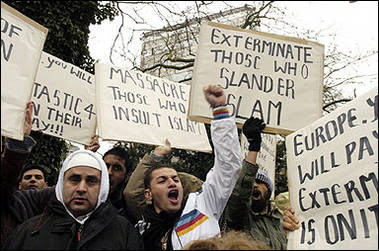|
A.S.S.E.Psi.
web site (History of Psychiatry and Psychoanalytic Psychotherapy
)
A.S.S.E.Psi.NEWS
(to subscribe our monthly newsletter)
Ce.Psi.Di. (Centro
di Psicoterapia Dinamica "Mauro Mancia")
Maitres
à dispenser (Our reviews about psychoanalytic congresses)
Biblio
Reviews (Recensioni)
Congressi
ECM (in italian)
Events
(our congresses)
Tatiana Rosenthal
and ... other 'psycho-suiciders'
Thalassa.
Portolano of Psychoanalysis
PsychoWitz - Psychoanalysis and Humor (...per ridere un po'!)
Giuseppe Leo's Art
Gallery
Spazio
Rosenthal (femininity and psychoanalysis)
Psicoanalisi
Europea Video
Channel
A.S.S.E.Psi. Video
Channel
Ultima uscita/New issue:
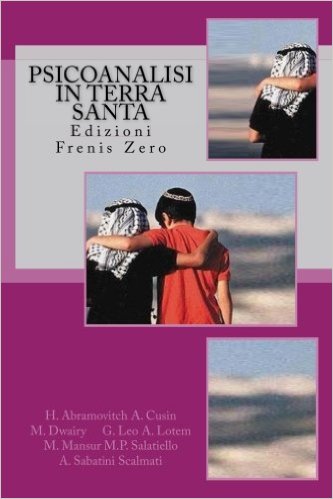
"Psicoanalisi in Terra Santa"
Edited
by/a cura di: Ambra Cusin & Giuseppe Leo
Prefaced by/prefazione
di:
Anna Sabatini Scalmati
Writings by/scritti di:
H. Abramovitch A. Cusin M. Dwairy A. Lotem M.
Mansur M. P. Salatiello Afterword
by/ Postfazione
di:
Ch. U. Schminck-Gustavus
Notes by/ Note di: Nader Akkad
Editore/Publisher: Edizioni Frenis Zero
Collection/Collana: Mediterranean
Id-entities
Anno/Year:
2017
Pagine/Pages:
170
ISBN:978-88-97479-12-3
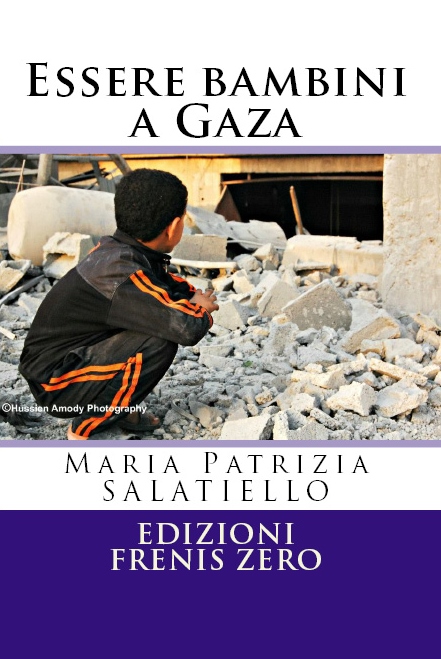
"Essere bambini a Gaza. Il trauma
infinito"
Authored
by/autore: Maria Patrizia Salatiello
Editore/Publisher: Edizioni Frenis Zero
Collection/Collana: Mediterranean
Id-entities
Anno/Year:
2016
Pagine/Pages:
242
ISBN:978-88-97479-08-6
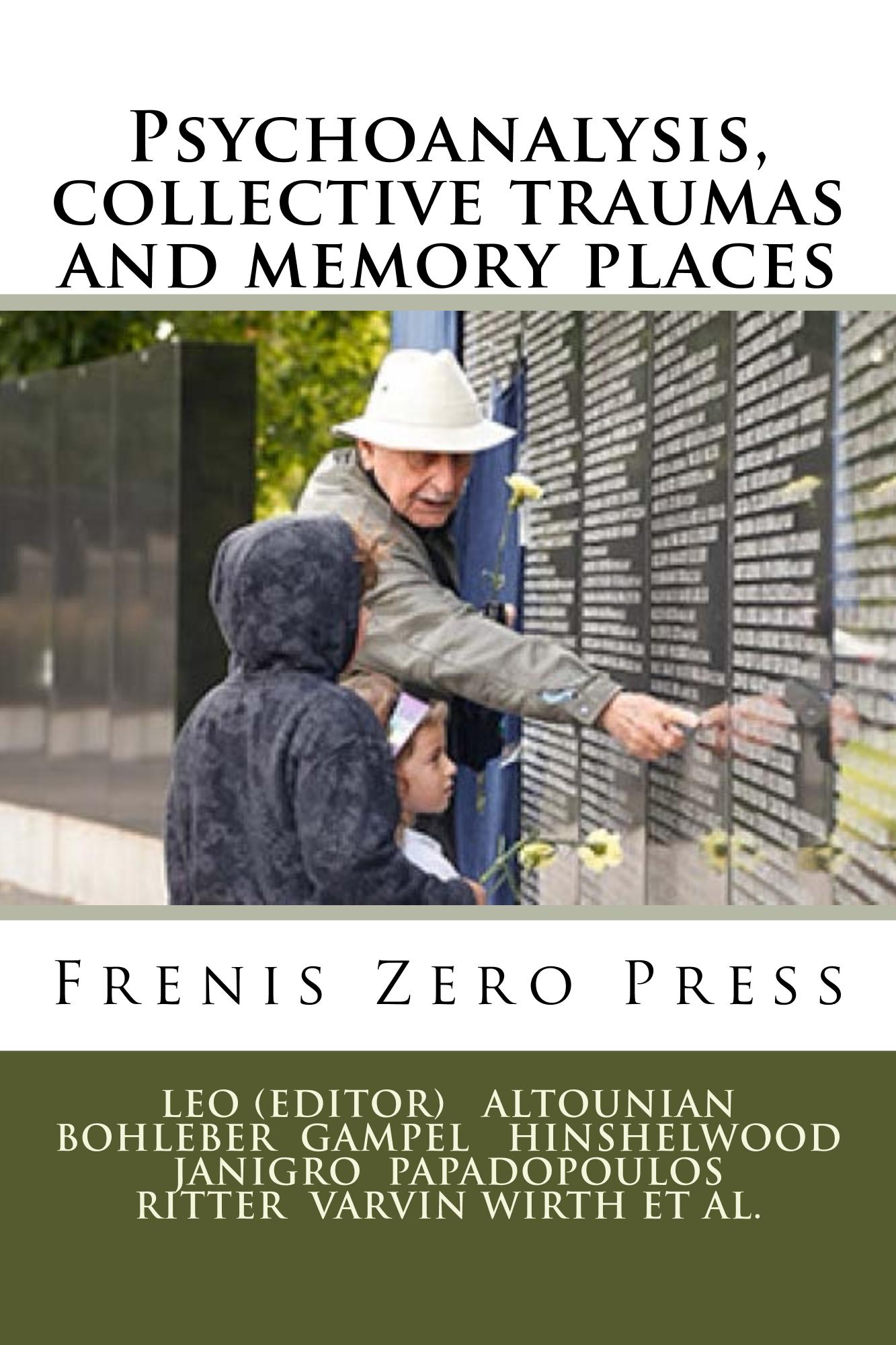
Psychoanalysis,
Collective Traumas and Memory Places (English Edition)
Edited
by/a cura di: Giuseppe Leo Prefaced by/prefazione
di:
R.D.Hinshelwood
Writings by/scritti di: J. Altounian
W. Bohleber J. Deutsch
H. Halberstadt-Freud Y. Gampel
N. Janigro R.K. Papadopoulos
M. Ritter S. Varvin H.-J. Wirth
Editore/Publisher: Edizioni Frenis Zero
Collection/Collana: Mediterranean
Id-entities
Anno/Year:
2015
Pagine/Pages:
330
ISBN:978-88-97479-09-3
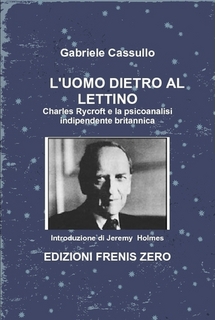
"L'uomo
dietro al lettino" di
Gabriele Cassullo
Prefaced
by/prefazione di: Jeremy
Holmes
Editore/Publisher: Edizioni Frenis Zero
Collection/Collana: Biografie
dell'Inconscio
Anno/Year:
2015
Pagine/Pages:
350
ISBN:978-88-97479-07-9
Prezzo/Price:
€ 29,00
Click
here to order the book
(per Edizione
rilegata- Hardcover clicca qui)
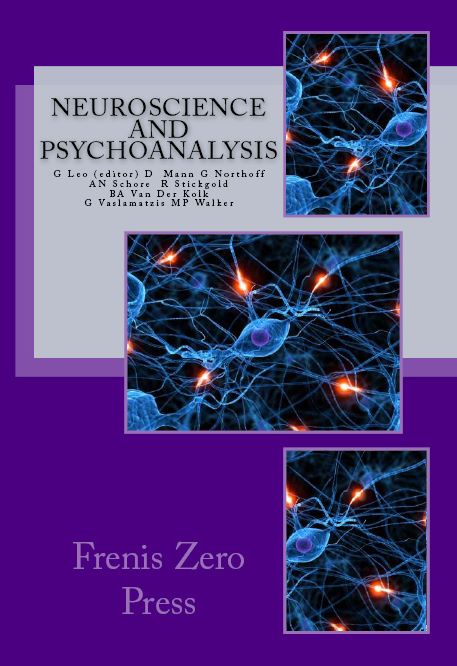
"Neuroscience
and Psychoanalysis" (English Edition)
Edited by/a cura di: Giuseppe Leo Prefaced by/prefazione
di: Georg Northoff
Writings by/scritti di: D. Mann
A. N. Schore R. Stickgold
B.A. Van Der Kolk G. Vaslamatzis M.P. Walker
Editore/Publisher: Edizioni Frenis Zero
Collection/Collana: Psicoanalisi e neuroscienze
Anno/Year: 2014
Pagine/Pages: 300
ISBN:978-88-97479-06-2
Prezzo/Price: € 49,00
Click
here to order the book

Vera
Schmidt, "Scritti su psicoanalisi infantile ed
educazione"
Edited by/a cura di: Giuseppe Leo Prefaced by/prefazione
di: Alberto Angelini
Introduced by/introduzione di: Vlasta Polojaz
Afterword by/post-fazione di: Rita Corsa
Editore/Publisher: Edizioni Frenis Zero
Collana: Biografie dell'Inconscio
Anno/Year: 2014
Pagine/Pages: 248
ISBN:978-88-97479-05-5
Prezzo/Price: € 29,00
Click
here to order the book
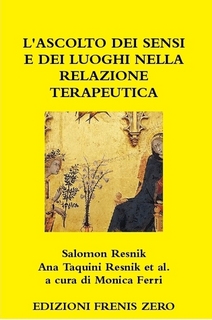
Resnik,
S. et al. (a cura di Monica Ferri), "L'ascolto dei
sensi e dei luoghi nella relazione terapeutica"
Writings by:A.
Ambrosini, A. Bimbi, M. Ferri, G.
Gabbriellini, A. Luperini, S. Resnik,
S. Rodighiero, R. Tancredi, A. Taquini Resnik,
G. Trippi
Editore/Publisher: Edizioni Frenis Zero
Collana: Confini della Psicoanalisi
Anno/Year: 2013
Pagine/Pages: 156
ISBN:978-88-97479-04-8
Prezzo/Price: € 37,00
Click
here to order the book
Silvio
G. Cusin, "Sessualità e conoscenza"
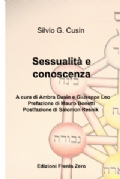
A cura di/Edited by: A. Cusin & G. Leo
Editore/Publisher: Edizioni Frenis Zero
Collana/Collection: Biografie dell'Inconscio
Anno/Year: 2013
Pagine/Pages: 476
ISBN: 978-88-97479-03-1
Prezzo/Price:
€ 39,00
Click
here to order the book
AA.VV.,
"Psicoanalisi e luoghi della riabilitazione", a cura
di G. Leo e G. Riefolo (Editors)
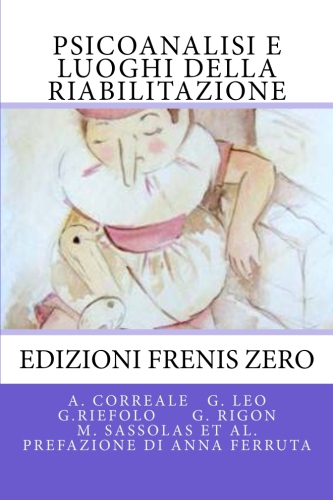
A cura di/Edited by: G. Leo & G. Riefolo
Editore/Publisher: Edizioni Frenis Zero
Collana/Collection: Id-entità mediterranee
Anno/Year: 2013
Pagine/Pages: 426
ISBN: 978-88-903710-9-7
Prezzo/Price:
€ 39,00
Click
here to order the book
AA.VV.,
"Scrittura e memoria", a cura di R. Bolletti (Editor)

Writings by: J.
Altounian, S. Amati Sas, A. Arslan, R. Bolletti, P. De
Silvestris, M. Morello, A. Sabatini Scalmati.
Editore/Publisher: Edizioni Frenis Zero
Collana: Cordoglio e pregiudizio
Anno/Year: 2012
Pagine/Pages: 136
ISBN: 978-88-903710-7-3
Prezzo/Price: € 23,00
Click
here to order the book
AA.VV., "Lo
spazio velato. Femminile e discorso
psicoanalitico"
a cura di G. Leo e L. Montani (Editors)
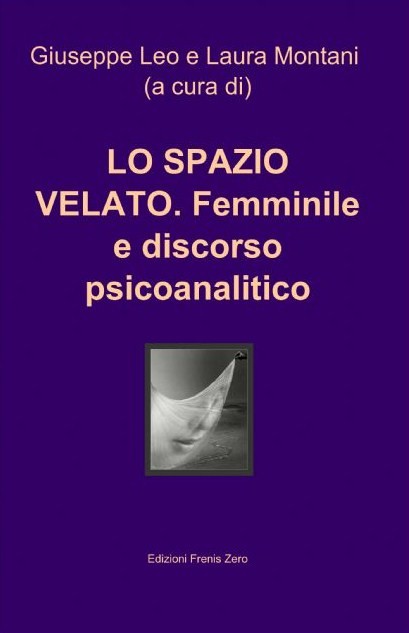
Writings by: A.
Cusin, J. Kristeva, A. Loncan, S. Marino, B.
Massimilla, L. Montani, A. Nunziante Cesaro, S.
Parrello, M. Sommantico, G. Stanziano, L.
Tarantini, A. Zurolo.
Editore/Publisher: Edizioni Frenis Zero
Collana: Confini della psicoanalisi
Anno/Year: 2012
Pagine/Pages: 382
ISBN: 978-88-903710-6-6
Prezzo/Price: € 39,00
Click
here to order the book
AA.VV., Psychoanalysis
and its Borders, a cura di
G. Leo (Editor)

Writings by: J. Altounian, P.
Fonagy, G.O. Gabbard, J.S. Grotstein, R.D. Hinshelwood, J.P.
Jimenez, O.F. Kernberg, S. Resnik.
Editore/Publisher: Edizioni Frenis Zero
Collana/Collection: Borders of Psychoanalysis
Anno/Year: 2012
Pagine/Pages: 348
ISBN: 978-88-974790-2-4
Prezzo/Price: € 19,00
Click
here to order the book
AA.VV.,
"Psicoanalisi e luoghi della negazione", a cura di A.
Cusin e G. Leo

Writings by:J.
Altounian, S. Amati Sas, M. e M. Avakian, W. A.
Cusin, N. Janigro, G. Leo, B. E. Litowitz, S. Resnik, A.
Sabatini Scalmati, G. Schneider, M. Šebek,
F. Sironi, L. Tarantini.
Editore/Publisher: Edizioni Frenis Zero
Collana/Collection: Id-entità mediterranee
Anno/Year: 2011
Pagine/Pages: 400
ISBN: 978-88-903710-4-2
Prezzo/Price: € 38,00
Click
here to order the book
"The Voyage Out" by Virginia
Woolf

Editore/Publisher: Edizioni Frenis Zero
ISBN: 978-88-97479-01-7
Anno/Year: 2011
Pages: 672
Prezzo/Price: € 25,00
Click
here to order the book
"Psicologia
dell'antisemitismo" di Imre Hermann
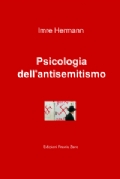
Author:Imre Hermann
Editore/Publisher: Edizioni Frenis Zero
ISBN: 978-88-903710-3-5
Anno/Year: 2011
Pages: 158
Prezzo/Price: € 18,00
Click
here to order the book
"Id-entità mediterranee.
Psicoanalisi e luoghi della memoria" a cura di Giuseppe Leo
(editor)
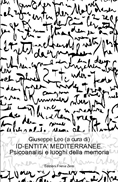
Writings by: J.
Altounian, S. Amati Sas, M. Avakian, W. Bohleber, M. Breccia, A.
Coen, A. Cusin, G. Dana, J. Deutsch, S. Fizzarotti Selvaggi, Y.
Gampel, H. Halberstadt-Freud, N. Janigro, R. Kaës, G. Leo, M.
Maisetti, F. Mazzei, M. Ritter, C. Trono, S. Varvin e H.-J. Wirth
Editore/Publisher: Edizioni Frenis Zero
ISBN: 978-88-903710-2-8
Anno/Year: 2010
Pages: 520
Prezzo/Price: € 41,00
Click
here to have a preview
Click
here to order the book
"Vite soffiate. I vinti della
psicoanalisi" di Giuseppe Leo
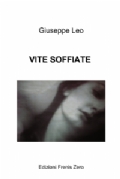
Editore/Publisher: Edizioni Frenis Zero
Edizione: 2a
ISBN: 978-88-903710-5-9
Anno/Year: 2011
Prezzo/Price: € 34,00
Click
here to order the book
"La Psicoanalisi e i suoi
confini" edited by Giuseppe Leo
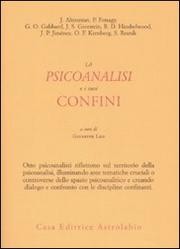
Writings by: J.
Altounian, P. Fonagy, G.O. Gabbard, J.S. Grotstein, R.D.
Hinshelwood, J.P. Jiménez, O.F. Kernberg, S. Resnik
Editore/Publisher: Astrolabio Ubaldini
ISBN: 978-88-340155-7-5
Anno/Year: 2009
Pages: 224
Prezzo/Price: € 20,00
"La Psicoanalisi. Intrecci Paesaggi
Confini"
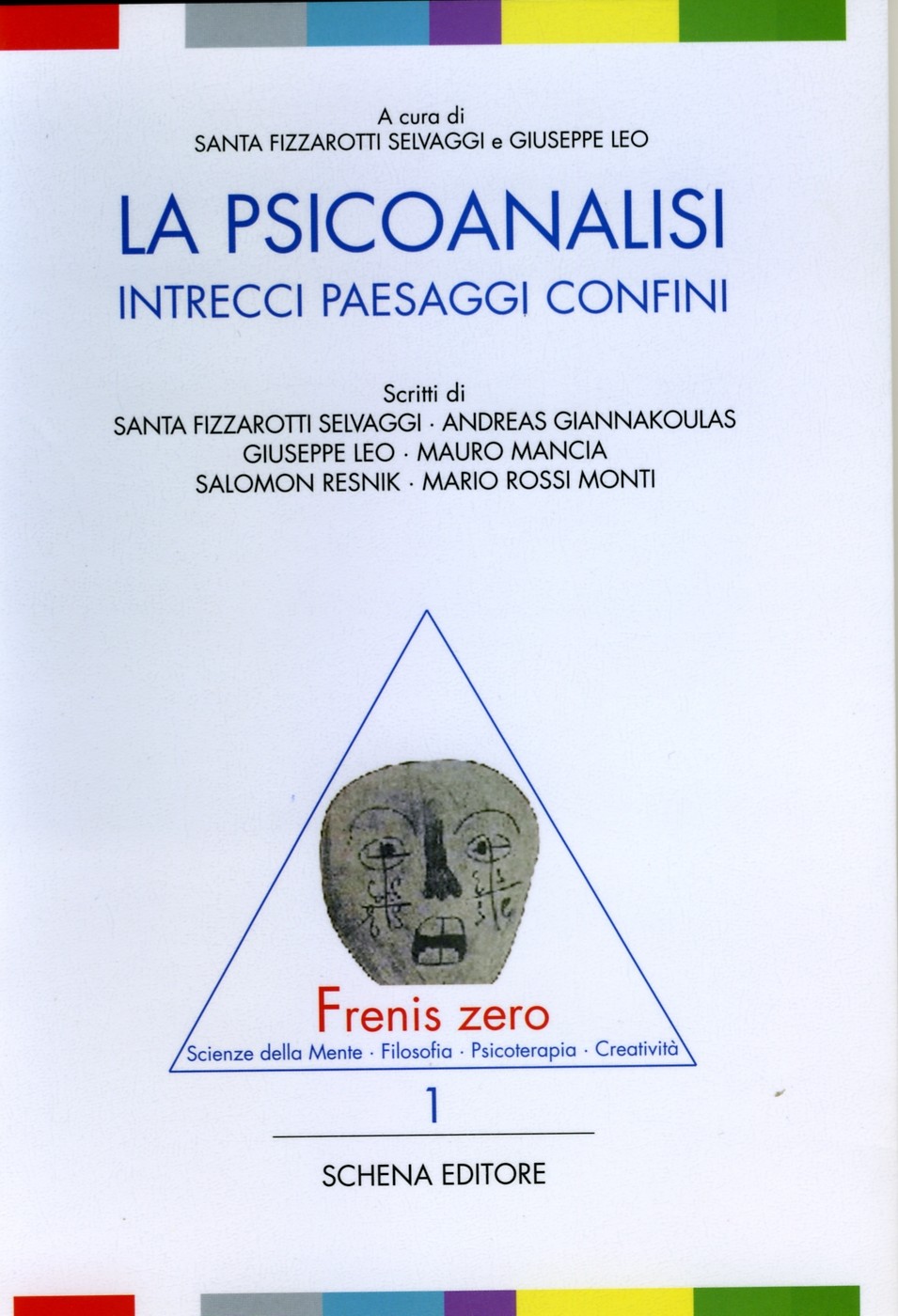
Edited by S. Fizzarotti Selvaggi, G.Leo.
Writings by: Salomon Resnik, Mauro Mancia, Andreas Giannakoulas,
Mario Rossi Monti, Santa Fizzarotti Selvaggi, Giuseppe Leo.
Publisher: Schena Editore
ISBN 88-8229-567-2
Price: € 15,00
Click here to order the
book |
Introduction
This paper explores the inspiration of psychoanalysis and critical
theory in the generation and interpretation of auto/biographical
narratives with particular reference to fundamentalism. The latter can
be seen to represent, in its closure to others and otherness, the
antithesis of some of the ideals of adult popular education. This
essay draws on recent research into the rise of racism and
fundamentalism, as well as the historical and contemporary role of
adult education, in what is now a post-industrial city in England
(West, 2016a&b). Adult education, past and present, can generate
‘resources of hope’, in Raymond Williams’ compelling phrase, for
democratic experiment (Williams, 1989). In the spirit of Kirsten
Weber, the paper’s theoretical sweep encompasses the dynamic
interplay of culture and psyche. It specifically draws on the work of
Donald Winnicott and Axel Honneth to consider processes of
self-recognition in human flourishing. Honneth draws in fact on John
Dewey to consider the prerequisites for a radical, far-reaching
understanding of ‘a cooperative contribution to social
reproduction’, and of what inhibits this. He argues that the mature
Dewey provides ‘an alternative in the end of work society’ where
we can ‘no longer assume the form of a normatively inspired
restructuring of the capitalist labour market’ (Honneth, 2007: 236).
Nevertheless, any impetus towards cooperation has to be set against
the dynamics of disrespect and how these can infuse racist or
fundamentalist groups, driving people towards alienation from one
another.
I want to suggest that our intimate vulnerabilities and need to be
loved are played out in the wider society, which explains the
attractions of the racist gang or Islamist group. We can feel
recognised there by significant others and in turn feel that we belong,
providing a basis for self-respect. But we may also be seduced by
totalising narratives that close us down to others and otherness in
the name of truth. Processes of psychological spitting take over in
what become paranoid/schizoid modes of functioning. Paranoia is
generated by fear of the other, rooted in anxieties about inadequacy,
while splitting involves projecting negative parts of our selves and
culture on the other; these are parts, or ‘objects’ that we may
most dislike in ourselves and people like us. Our own culture is then
idealised.
The best of adult education, on the other hand, is grounded in an
ideal of equality, respect, trust, dialogue as well as diversity and
openness to the other. It has generated processes of self-recognition,
including of bigotry within, as well as recognition of the other and
awareness of the complexities of knowledge and sensitivity towards
different ways of knowing. (Although there are fundamentalist
tendencies in all groups, including workers’ education. Some of the
autodidacts in the history of British popular education could be rigid
and uncompromising in their views, fuelled by dissenting
‘religious’ beliefs. Their adoption of particular versions of
Marxism could drive them towards an intolerant defensiveness (West,
2016a)). My other paper at this Conference focuses on the best of
adult education, then and now, in the city, and its centrality in
cultivating democratic sensibilities (West, 2016b). The present paper
focuses on disrespect and psychosocial dynamics in specific Islamist
groups.
Distress
in the city
In
2008, I was greatly troubled by the rise of racism and fundamentalism
in the ‘postindustrial’ city of my birth, Stoke-on-Trent, in the
English Midlands. In 2008/9 the racist British National Party (BNP)
was strengthening its presence in parts of the city and a mosque was
pipe-bombed. It seemed that racists would form the majority on the
Municipal Council by 2010 (West, 2016a). There were incidents of
racial violence and outbursts of Islamophobia. The economic base of
the city had long since unravelled and its politics were in chronic
crisis, with low levels of engagement in voting. The traditional
employment base of the city – coal mining, iron and steel production
and pottery - had disappeared altogether or drastically declined.
Longterm structural unemployment was endemic (West, 2016a). The
financial crisis, from 2008 onwards, and consequent austerity,
including cuts in local government funding, added to the distress. And
adult education, once so important in the city, had been marginalised,
although it continued to do important work.
Historical geographer Matthew Rice (2010) has written that ‘maybe
Stoke-on-Trent’, England’s twelfth biggest city, ‘is just one
industrial city too many’ (p. 17). Yet this city was once home to
vibrant pottery, mining, and iron and steel industries. Hundreds of
thousands of plates, cups and saucers, all packed safely with straw in
barrels or wooden baskets, were sent to food markets in India, Ceylon
(now Sri Lanka), Canada, Australia, New Zealand and America. In 1925,
100,000 workers were employed in the pottery industry. By 2009 the
figure was about 9000. Rice notes that wages were never high in Stoke,
and cheap labour came to the area from places like Kashmir and the
Punjab in Southern Asia in the 1960s. Low wages in Stoke equated
however to relatively high sources of income for migrant families. But
when outsourcing gathered pace, many of the descendants of those whose
grandparents had migrated were left in a jobless limbo. Having a job
matters for cultural as well as economic reasons, particularly for
young Asian men: to be the head of the family and support its members
is a strong cultural as well as economic imperative.
Auto/biographical
narrative interviewing in a clinical style
I
will explain the use of the auto/biographical narrative methodology,
in a clinical style, informed by psychoanalysis. The stories people
tell are always a reconstruction of events, afterthoughts, rather than
the events themselves, while the powerful discourses of a culture and
unconscious processes of wanting to please or appease circulate in
stories. They can be seen as of little relevance to any bigger picture
of, for instance, democracy in crisis or the rise of fundamentalism
– ‘fine meaningless detail’, as one historian graphically framed
it (Fieldhouse, 1996). Yet we can so much better understand the
nuances of why particular people are attracted to the BNP, or
radicalized, through the lifelong and life-wide lens of auto/biography.
This is its especial power.
For one thing, the general – or bigger – picture is always there
in the particular, not least in the narrative resources people draw on
to tell their stories. We are storied as well as storytellers. Stories
may constrain as well as liberate, as a bigger picture – of
neo-liberal assumptions, say, or of the actions of the Western world
– grip particular accounts. And people can internalize the
negativities about ‘people like us’, whether emanating from the
mouths and projections of politicians, policymakers or the mass media.
Those targeted may be struggling on benefits or single parents, as
chronicled in my earlier work in other marginalized locations (Merrill
and West, 2009). People can feel themselves to be the racist objects
of society’s disdain, caught in the gaze of the judgemental other
and constantly needing to justify themselves. Those on the margins
easily internalize negative projections, or feel inadequate (West,
2007; 2009). Those on the edge have had to learn to deal with many and
varied authority figures day by day: the social worker, the job centre
assessor, the head teacher, the health visitor, researchers, and for
present purposes, racists. They can have wellrehearsed tales to tell
(West, 2009).
But people, it is suggested, are not simply aggregates of certain
sociological or cultural variables. We are living beings with stories
to tell of what it feels like to exist in particular conditions, or to
experience disrespect on the street. Our aspirations and narratives
have validity in their own terms, however difficult and distasteful
these might be. Understanding lives from the inside requires time and
the cooperation of those involved, and an appreciation of research as
a legitimate process for them, an opportunity to tell and think about
their stories. Interpretation also requires what I term a psychosocial,
historical and educational imagination, one that reminds us that
people are psychosocial agents rather than marionettes on a
predetermined sociological stage. People make, as well as are made by,
history.
The study sought to illuminate some of the seductions and insecurities
fuelling racism and fundamentalism on a white working class estate and
in areas of the city where Muslim people lives. The 50 or so
participants in the study were in the main ‘ordinary’ people. The
sample was opportunistic – I asked officers of the City Council for
names of people that might be helpful to my work and they in turn
helped me make contact with others. As the research developed, the
sampling became more purposive or theoretical, as I sought to
interview individuals who were attracted, say, to Islamism.
Winnicott, Honneth and Dewey helped me make sense of many stories.
Axel Honneth (2009) refers to Winnicott to emphasise the fundamental
importance of love, in processes of self-recognition, of feeling
understood and legitimate in the world, in our most intimate of
interactions. However, he also interrogates the role of groups in
generating a second category of recognition, which he calls
self-respect. This is when people feel accepted and that they belong,
with rights and responsibilities. Self-esteem provides Honneth’s
third category of recognition. This happens when individuals feel
recognized because they are seen to contribute to a group’s wider
well-being and development (Honneth, 2007; 2009). But then processes
of recognition can be aborted, as the other is experienced,
consciously and unconsciously, as the problem needing to be expunged
in processes of splitting and idealisation.
Islamic
fundamentalism in the city
People
of South Asian origin settled in Stoke came from places like Kashmir,
Pakistan and Bangladesh. They make up about 50 per cent of the city’s
ethnic minority population and in 2011 numbered just over 9000 (Burnett,
2011). Some of these people talked about constant experiences of
disrespect and everyday experiences of Islamophobia: among taxi
drivers, for instance, told frequently to ‘fuck off home’ by white
clients. The sense of everyday disrespect was amplified by stories of
actual physical violence: an Asian man was killed and others injured
as well as mosques damaged. Such experiences of disrespect evoke
insecurity, vulnerability and defensiveness – paranoia even – and
may reinforce the tendency for people to congregate in particular
areas, among their own. Disrespect also ignites the feeling that other
people’s behaviour is wrong, grounded in some normative ideal of
justice.
Islamic fundamentalism has attracted young people in specific mosques.
Small numbers, but they exist. The groups offer the three types of
self-recognition, as described above, of self-confidence, respect and
esteem, but this is then followed by scapegoating narratives and the
stereotyping of difference. The perception of others becomes a
self-motivated distortion accompanied by an idealization of self and
one’s own culture. The pursuit of material wealth or pleasure, for
instance, or the sexualisation of women and a capacity for violence
are projected onto the other of, say, the white working class
estate.
Culturally, it was also clear that relationships between the
generations have suffered, as male initiation rituals between fathers
and sons, in the workplace, are lost. Narratives of the
‘Christian’ neglect of white Muslims in the Bosnian conflict, in
contrast to the ‘Christian’ (that is Russian Orthodox) support for
the ‘Christian’ Serbs, also filled some of this economic and
intergenerational vacuum. In the 1990s actions by the West, standing
back as Muslims were slaughtered, as at Srebrenica, were essentially
seen as anti-Islamic rather than racist, given that Muslims there were
white. Certain young people inwardly digested stories of Muslim
humiliation, collective trauma and ‘Christian’ hostility, and the
need to fight back in ways that previous generations had failed to do.
The political became deeply personal, fuelled by the toxicity of
Islamophobia.
A community leader, who I call Aasif, (the names used are pseudonyms)
talked about these issues:
…
you had groups like Hizb ut-Tahrir taking advantage of the situation
in Bosnia … with what’s happening with the Muslims ... arms not
being allowed to get to the Muslims to defend themselves where Russia
is providing the Christian Serbs; it was a them-against-us kind of
debate with groups like Hizb ut-Tahrir … talking about the male
Muslim section of Muslim community at that time; the youth, low
education achievement, low aspiration … no job opportunity…
perfect audience… you can recruit easy ... It’s nothing to do with
the colour of your skin; this is not racism; this is a target on the
Muslim community because these Muslims are white … I can remember
some of these Hizb ut-Tahrir members who in the early ’90s, pulling
the youth away from the parents as well.
From
this perspective, Bosnia was a trauma, in which scales fell from
collective eyes: it led to increased politicization and provided a
mythic rationale for fundamentalism (Varvin, 2012). Groups like Hizb
ut-Tahrir (or Liberation Party) – حزب
التحرير ,in the Arabic –
exploited such feelings. Hizb ut-Tahrir is an international panIslamic
political organization commonly associated with the goal of all Muslim
countries unifying into one Islamic caliphate, ruled by sharia law.
Hizb ut-Tahrir was founded in 1952 as part of a movement to create a
new elite among Muslim youth. The writings of the group’s founder,
Shaikh Taqi al-Dine al-Nabahani, lay down detailed descriptions for a
restored caliphate (Ruthven, 2012).
There was a further dimension to intergenerational dynamics. Some
young people had little respect for particular imams who had come to
Stoke from their parents of grandparents’ villages in Pakistan,
Bangladesh or Kashmir. Older generations had wanted an emotional link
with home. But the imams had only limited education and poor English.
A young person like Raafe, for example, schooled in England, ridiculed
some of the established authorities in the Mosques.
Raafe
A
community leader, Aatif, told me about the weaknesses of mosque
management and of imams and how Raafe and others exploited this. Raafe,
I was told, was an individual ‘who had a very troubled upbringing’
and had been sent to prison:
…
Raafe didn’t have a very good relationship with his father ended up
in crime … was sent down to prison … Came out of prison and he was
within a few weeks, he was, he had transformed into somebody who was a
practising Muslim now to hear him … later on when we realized he was
part of Hizb ut- Tahrir, but at that point to see somebody change so
dramatically was wow, he made a real positive change ... you couldn’t
explain to your parents why you wanted to … your parents who came in
the early ’60s … came when they were young … so very little …
religious… education … so they didn’t have…opportunity to
question the imams and learn something; so they couldn’t pass that
religious knowledge on to the youth, to their children; so the parents
relied upon the mosques to offer that … so that’s where the
communication barrier helped groups like Hizb ut-Tahrir. We can offer
you Islamic information in your language, that’s what attracted a
lot of people in Stoke-on-Trent on topical issues …
Radicalization
transformed the lives of some individuals, providing meaning, purpose
and self-recognition. Raafe’s transformation almost certainly
depended on feeling understood, listened to and respected by radical
groups in prison. They could well have built up self-confidence and
eventually a radical purpose. Raafe, I was told by various people, was
already an active member of a radical group when he left prison. He
then ran youth discussion groups in particular mosques.
Self-recognition works at an imaginal and narrative as well as
interpersonal level; by association with heroes and causes from the
past, that speak to present needs, however perversely.
The pedagogy of radicalization exploits the vacuums and
meaninglessness in particular lives, giving people a potential place
in history. It involves stories and appeals to action, rather than
textual hermeneutics. Narratives of twelfth- century victories
supported a call for jihad now, one requiring toughness and heroism.
Jihad, or struggle, becomes constructed as a heavy responsibility that
requires brutality to demoralise a more powerful opponent. The victory
of the Muslim armies, led by the King of Jerusalem, Guy of Lusignan,
against the Crusaders in the twelfth century’s Battle of Hattin, is
interpreted as the outcome of a long process of small-scale, hard
hitting attacks in various locations. Past struggles are reinterpreted
in the light of the present in the struggle against the new crusaders
of the West and its client states. Heroism and martyrdom are called
for in what is a very different pedagogical process from rational,
textual analysis of the Qur’an. Muslim clerics may speak in the
language of theory, the jihadi groups act through stories and doing (Hassan
and Weiss, 2015).
Thus Islamophobia and everyday disrespect, when mixed with national
politics, foreign policy adventures and intergenerational fractures
within Muslim communities, draws individuals towards Islamism.
Powerful forms of recognition are provided, which operate at a
primitive emotional, as well as group and narrative level. Individuals
feel understood and find purpose, meaning and legitimacy in the world.
Recognition gives meaning to fractured lives and even ‘divine’
purpose. But in the closed fundamentalist group, the process is
impregnated with misrecognition of the other, and with dialogical and
narrative closure. There is alienation, ironically, from self as well
as otherness in the process. The capacity to engage openly and
reflexivity with experience, in all its messiness, closes down; debate,
dialogue, enquiry and self/other recognition, on which social
solidarities and cooperation ultimately depend, are stifled.
Conclusion:
recognition, fundamentalism and the psychosocial
The
research into radicalisation processes enables us to refine the
concept of recognition. It encompasses, as Honneth suggests,
self-recognition at an intimate emotional, relational, group but also
a narrative level. Moreover, such processes are often largely
unconscious, in that recognition takes us beyond words or discursive
understanding of intimate relations or group formation. Primitive,
emotional forms of communication can make people feel that they are
understood, cared for, loved even; such experience ‘speaks’, at
times, louder than words. Raafe felt cared for in prison, his
struggles and troubles were understood and new narrative resources
were then made available. This enabled him to work with other
alienated young Muslims, to care for them in a way that he was cared
for himself. The other young people no doubt felt recognised by
someone they admired, because he spoke to their concerns (and with an
authority grounded in visits to the Middle East). Raafe also built
narrative connections over time, between their anxieties and those of
Muslims, in the past. Such narratives explained suffering in terms of
attacks on Islam and the need for heroic struggle against crusaders,
then and now. These dynamics, however perverted, provide existential
meaning and the promise, for some, of entry into Paradise. But finally
it is important to emphasise that fundamentalism is no ‘other’,
but rather a dynamic that exists within us all. It has to do with
feeling out of our depth and grabbing at ideas that appear to offer
total solutions, an answer to everything, including our anxiety. We
can all find living in uncertainty difficult, but of course, not
everyone reaches for a Kalashnikov. This is where a subtler
understanding of individual biographies is required, like Raafe’s,
to appreciate the allure of violence in specific lives.
The ‘psychosocial’ theory of recognition developed in the study
encompasses appreciation of shared vulnerability and a common need for
love, affirmation, respect, esteem, dialogue and narrative
meaningfulness. Dependency is hardwired into us in what psychoanalysis
terms ‘memory in feeling’. Our efforts to manage separation and
individuation processes can evoke great anxiety. We need good enough
loving but challenging relationships to do this (Winnicott, 1971).
These primitive dimensions of recognition can play out later in
struggles to be accepted in, and important to, an Islamist group. It
is not so much about having a good opinion of ourselves but the
feeling of a shared dignity of persons who can be morally responsible
agents, capable of purposive action in the world. However, Dewey
(1969) enables us to differentiate between the narrative closure of
the Islamist group and perverted forms of action, and the relative
openness of democratic adult education.
Dewey observed that the good citizen requires democratic association
to realize what she might be: she finds herself by participating in
family life, the economy and various artistic, cultural and political
activities, in which there is free give and take with diverse others.
This fosters feelings of being understood and creates meaning and
purpose in the company of others. Dewey suggests that good and
intelligent solutions for society as a whole stem from relatively
open, inclusive and democratic types of association. In scientific
research, for instance, the more scientists freely introduce their own
hypotheses, beliefs and intuitions, the better the eventual outcome.
Dewey applied this idea to social learning as a whole: intelligent
solutions are the result of the degree to which all those involved in
groups participate fully without constraint and with equal rights. It
is only when openly publicly debating issues, in inclusive ways, that
societies really thrive (Honneth, 2007: 218–39). Honneth concluded
that Dewey’s normative idea of healthy democracy was grounded in a
social ideal of cooperation, rather than politics per se; in openness
to complex experience which may challenge what we think, feel and do.
In the case of a ‘robber band’, (which is an example Dewey himself
gives) or the racist and fundamentalist group, however, there is
closure to others and ultimately to the search for truth. This is a
defence mechanism, operating at a primitive psychological as well as
group level. For this reason, we can legitimately reframe Dewey’s
social ideal as a psychosocial one. When individuals and groups close
themselves off to the other, it needs to be understood in both
personal and culturally defensive ways. Such a psychosocial,
epistemological perspective takes us right back to the inspiration of
Kirsten Weber’s own work.
|
 click here
click here ![]() to
read this article in Italian
to
read this article in Italian

